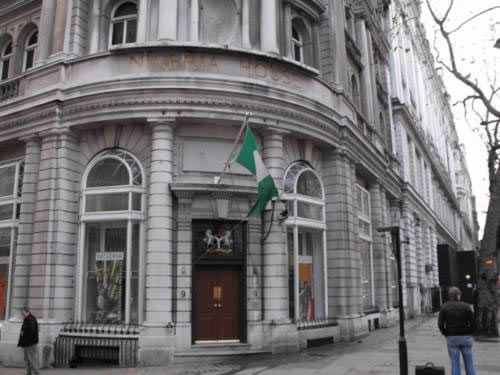The UK Transport for London (TfL)a local government body responsible for most of the transport network in the United Kingdom’s capital city, has revealed that the Nigerian Embassy in London owes congestion charges totaling £8,395,055.
Congestion charges are fees levied on drivers for entering a specific central zone of the city during certain hours. The aim is to reduce traffic congestion by discouraging unnecessary car use.
The Nigerian Embassy, which ranked fourth among the UK’s 48 foreign debtors in a list of “stubborn minority” debtors released by the TfL, has not been able to pay up its embassy congestion charge since 2003.
The American embassy ranked first in the list of debtors owing nearly £15 million, which is 10.3 percent of the total sum of £143,527,113 owed by 48 countries, followed by Japan which owes £10 million, making it 7.1 percent and the High Commission for India, £8.5 million, which is 6.0 percent and that of Nigeria is 5.9 percent.
The congestion charge, according to TfL, “is a charge for a service and not a tax,” adding that “diplomats are not exempted from paying it.” The UK government said it was pushing to escalate the matter to the International Court of Justice to ensure offending nations get penalised should they refuse to pay.
“We will continue to pursue all unpaid Congestion Charge fees and related penalty charge notices and are pushing for the matter to be taken up at the International Court of Justice,” TfL stated.
In February, the minister of the Federal Capital Territory (FCT), Nyesom Wike, asked the British High Commission and other foreign embassies to pay up their ground rent or risk revocation of license. Wike revealed that the British High Commission owed the Nigerian government $1,000.







